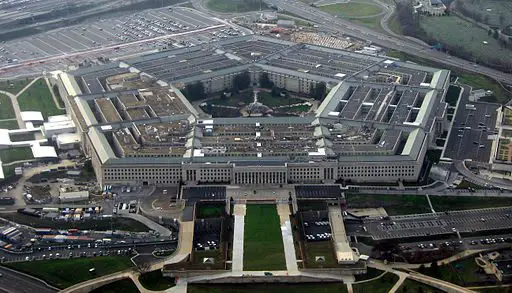
The Defense Information Systems Agency (DISA) under the U.S. Department of Defense does not want Pentagon staff to use the Ministry of Defense’s internal network to browse the Internet, trying to isolate Internet and agency’s internal networks by pushing web browsing to the cloud.
The DISA’s Office of Requirements and Analysis (RAO) published an RFI on the FedBizOpps website on June 11th, 2018, about the “Cloud Based Internet Isolation Solution,” seeking to provide this Solution provider to support Department of Defense endpoint security solutions.

Image: By David B. Gleason from Chicago, IL (The Pentagon) [CC BY-SA 2.0], via Wikimedia Commons
DISA pointed out in the RFI that the contract value of this “Cloud Based Internet Isolation Solution” is about $27.5 million, and its provided cloud-based Internet isolation capabilities for various uses of the Department of Defense The network threatens end-users’ cyber attacks to provide defence.
This cloud-based Internet segregation solution will provide the Department of Defense with a system that allows US Department of Defense personnel to access the Internet while also isolating the staff’s online operations from the Department of Defense’s internal network. The system can redirect Web browsing to remote servers located in the Federal Data Center and supports all approved proxy browsers and authentication tools.
- The system also can handle at least 3.1 million users at any time, and it must also provide a secure way to record each user’s online activities and send them back to the organisation.
- Cloud-based Internet isolation solutions in the cloud network must meet a series of performance specifications, including minimum 10 Gbps throughput, no more than five seconds start-up time and the ability to support more than 25 browser tabs without affecting the quality.
- Also, the system must also allow the US Department of Defense to whitelist or blacklist sites that are based on geographic location, category, and other factors.
Given the size and scope of the Pentagon’s activities, hackers and cybercriminals may launch cyber attacks against Pentagon employees. According to DISA estimates, the US Department of Defense is blocking about 36 million messages carrying malware, viruses, and phishing attacks every day. Back in 2015, to prevent phishing attacks, the US Department of Defense set the Internet links in all e-mails as “unclickable.”
The latest attempt by the US Department of Defense to isolate the Internet is to respond to cybersecurity attacks against this sector. After recording the user’s movement trajectory for a fitness application and inadvertently leaking the location of the US military base, the US Department of Defense banned mobile phones, laptops, tablet computers, and all other devices capable of transmitting and storing confidential data in May 2018.
Source: nextgov